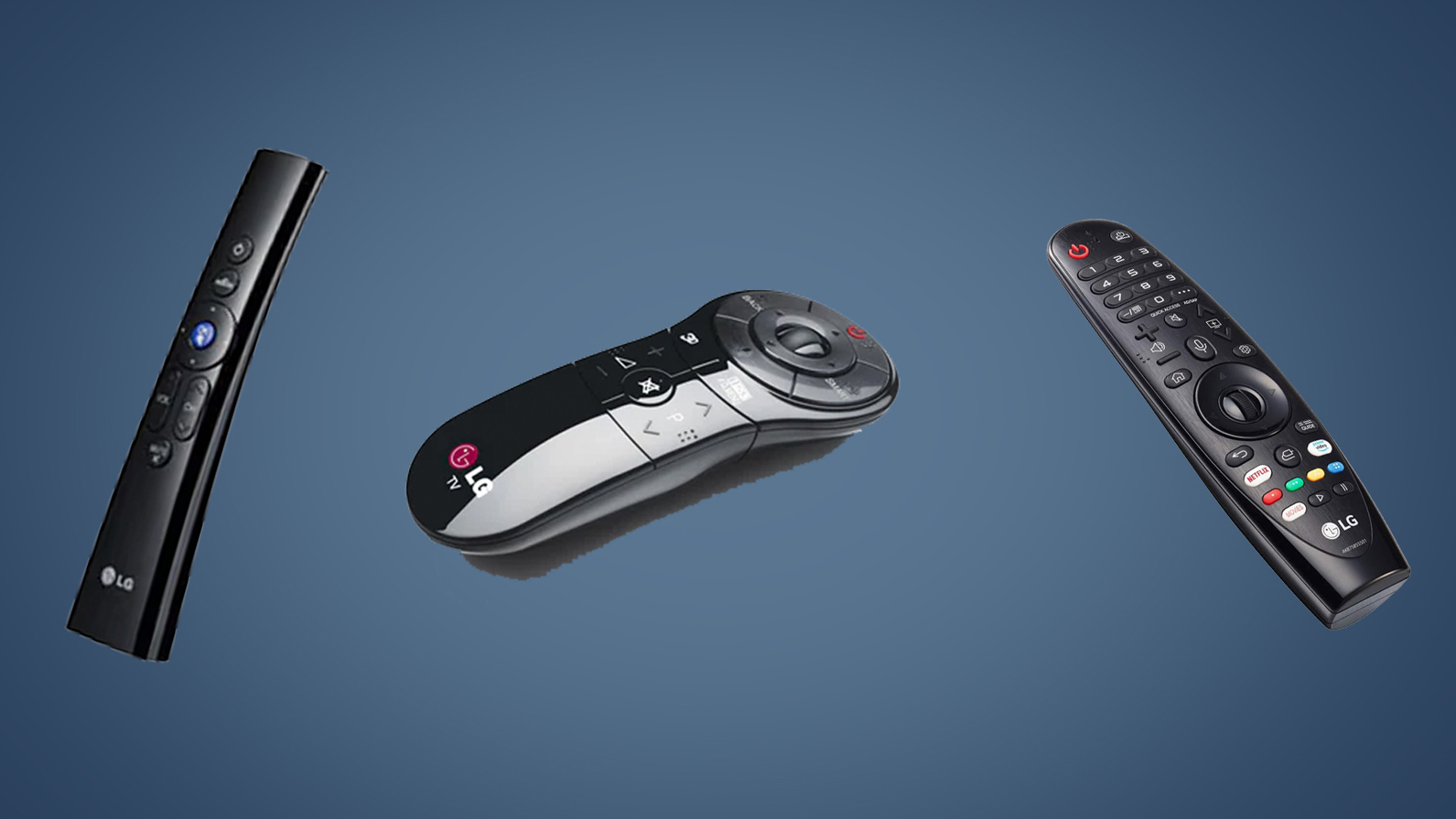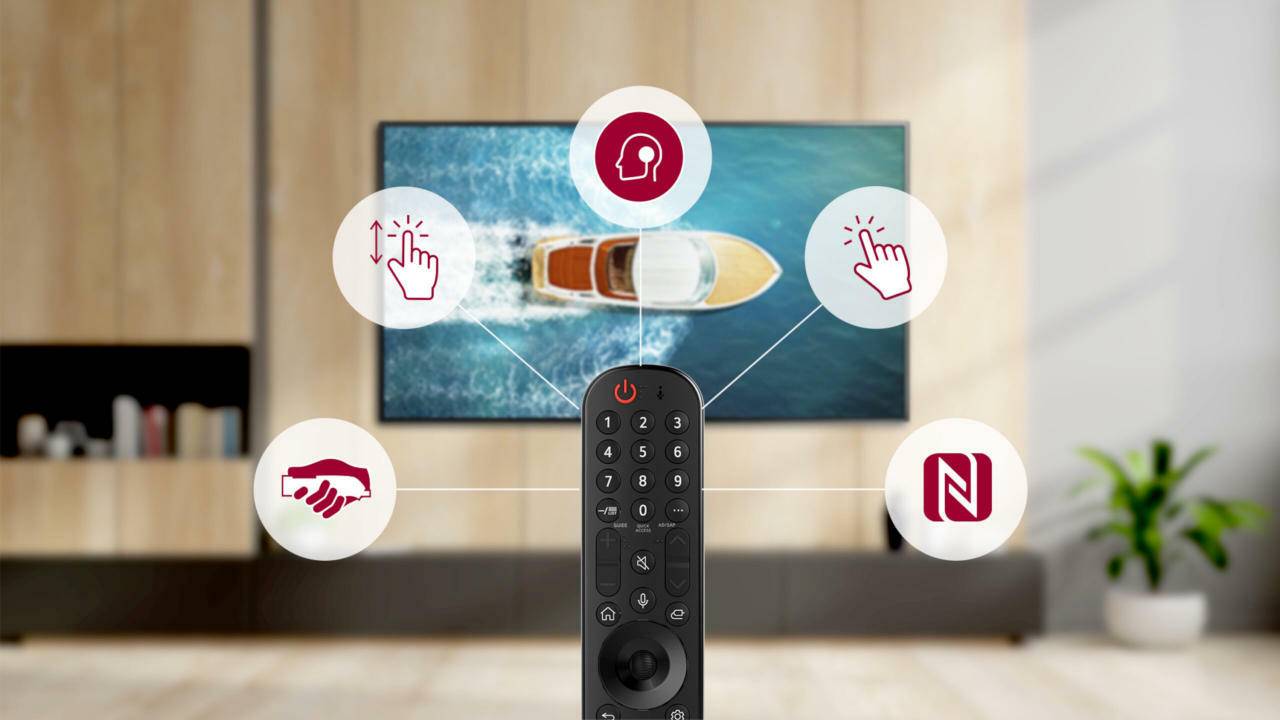The best thing about this year’s LG OLED TVs? The new Magic Remote

In the bustle of new TVs that emerge every year from big TV brands like Sony, Samsung or LG, it can be easy to overlook some of the finer details, or new changes that are more to do with usability than drastic picture enhancements and Dolby Atmos sound.
In that case of LG’s 2021 TV range, the new Magic Remote is one of those finer details that’s well worth dwelling on, now that it’s out in the wild.
LG’s Magic Remote has been around in some form for a good few years now, first launching in 2010 as the Magic Motion remote – back when it was appropriate for Engadget to describe it as having “Wii-style motion controls'' (like Nintendo’s best selling console) due to the peculiar point-and-click functionality it brought to its LG TV remote. It did this using motion technology from Hillcrest Labs, a company that also supplied similar tech for Sony’s PlayStation Move controllers.
It’s this functionality that makes using an LG TV feel that little bit different, with the option to forgo traditional scrolling or clickpad navigation for something more freeform – and more in sync with the hand gestures of a society used to using a keyboard and mouse. Of course, the brilliance of the Magic Remote is that it makes this additional functionality optional, giving users the choice to point and click, scroll with a click wheel, or step between icons with an eight-directional clickpad.
It was designed specifically for LG’s 3D smart TVs, though the Magic Remote has proven the test of time in a way that 3D definitely hasn’t. It’s seen a new evolution for 2021, too, a whole decade later – refining its proposition, while also making some concessions to more traditional remote form factors.
Science fiction

What’s so fascinating about the Magic Remote is how its shape has changed and evolved over the years. In its initial iterations – like the 2011 AN-MR200 – it took after a Matrix coat or vampire cloak in its silhouette, with a tall shape and concave sides.
LG went on to embrace a slightly more space-age design with its 2013 iteration, the AN-MR400, with large (and not especially space-saving) buttons emanating from a central browser wheel, and hard, plastic buttons. The AN-MR500G model after that was condensed into more of an oval shape, like the floating obelisks from Denis Villeneuve’s 2016 sci-fi drama Arrival, pulling the center of gravity towards the remote’s midpoint but with essentially the same layout – as LG oscillated into a convex shape instead.
More recent models have cleaved a lot closer more traditional ‘clicking stick’ design of most TV remotes, with 2020’s AN-MR20GA sporting a rectangular shape and even a numerical keypad – a boon for anyone still watching TV channels over broadcast or satellite, if not those that have made the move over to Netflix and other OTT services permanently. (You won’t find them sporting buttons for 3D functionality these days either.)
But it’s the 2021 iteration, the AN-MR21GA, that has fully embraced the norm, doing away with the slight bulge around the remote’s waist to achieve a straight-line shape on both sides, and course-correcting from the previous ‘bottom-heavy’ model.
There’s still a pleasing dip on the remote’s underside for resting a finger, retaining the ergonomic tradition of the Magic Remote while messing with the clicker’s shape as little as possible. While some remotes are certainly slimmer – like the sleek, secondary remote that comes with the best Samsung TVs – the new Magic Remote is clearly engineered to fit in the hand more comfortably than most.

It does this while fitting in possibly more shortcut buttons than any other major TV brand, with a six-pack of buttons on the lower end of the remote for Netflix, Amazon Prime Video, Disney Plus, Rakuten TV, Google Assistant and Alexa.
But the most impressive thing about this 2021 model is how its new shape aids the weight distribution, offering more stable navigation in its point-and-click mode.
The latest (I’m tempted to say ‘final’) form is somehow both the most mundane, visually unremarkable iteration of the Magic Remote to date, while harnessing its best feature – the onscreen cursor – with greater success than ever.
Customer loyalty
Naturally, the TV remote is often a last-thought accessory for TV buyers, and clearly nowhere near as important as getting decent picture quality out of your purchase. But in a TV market that’s filled with countless high-quality screens, it can be the peripherals that end up tipping the scales in one TV maker’s favor, or just make an argument for brand loyalty over the years.
And in the case of LG’s Magic Remote, its unique navigation features can feel very hard to go without once you’ve moved on to a different TV brand.
- Check out the best LG TVs or best OLED TVs here
from TechRadar - All the latest technology news https://ift.tt/3p3j5lT

Post a Comment